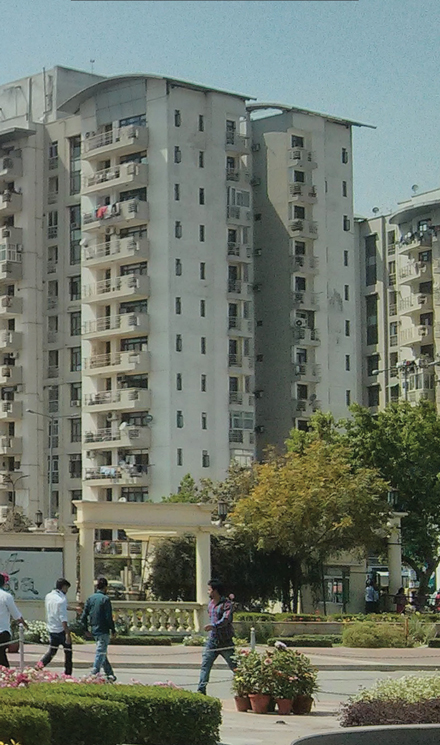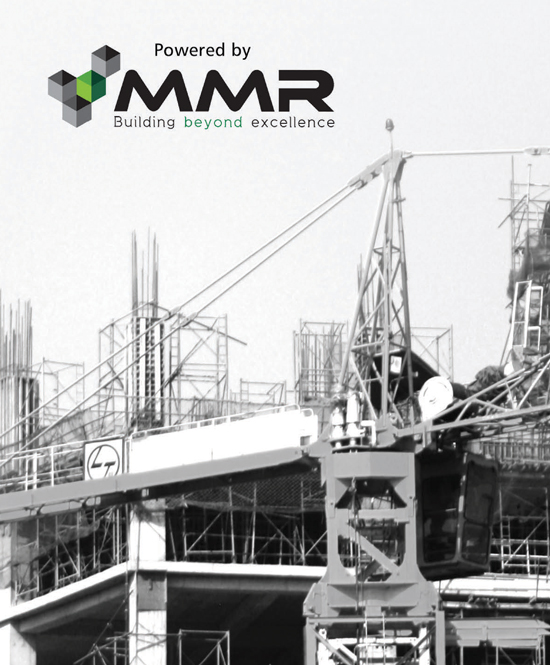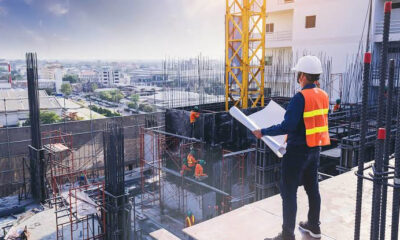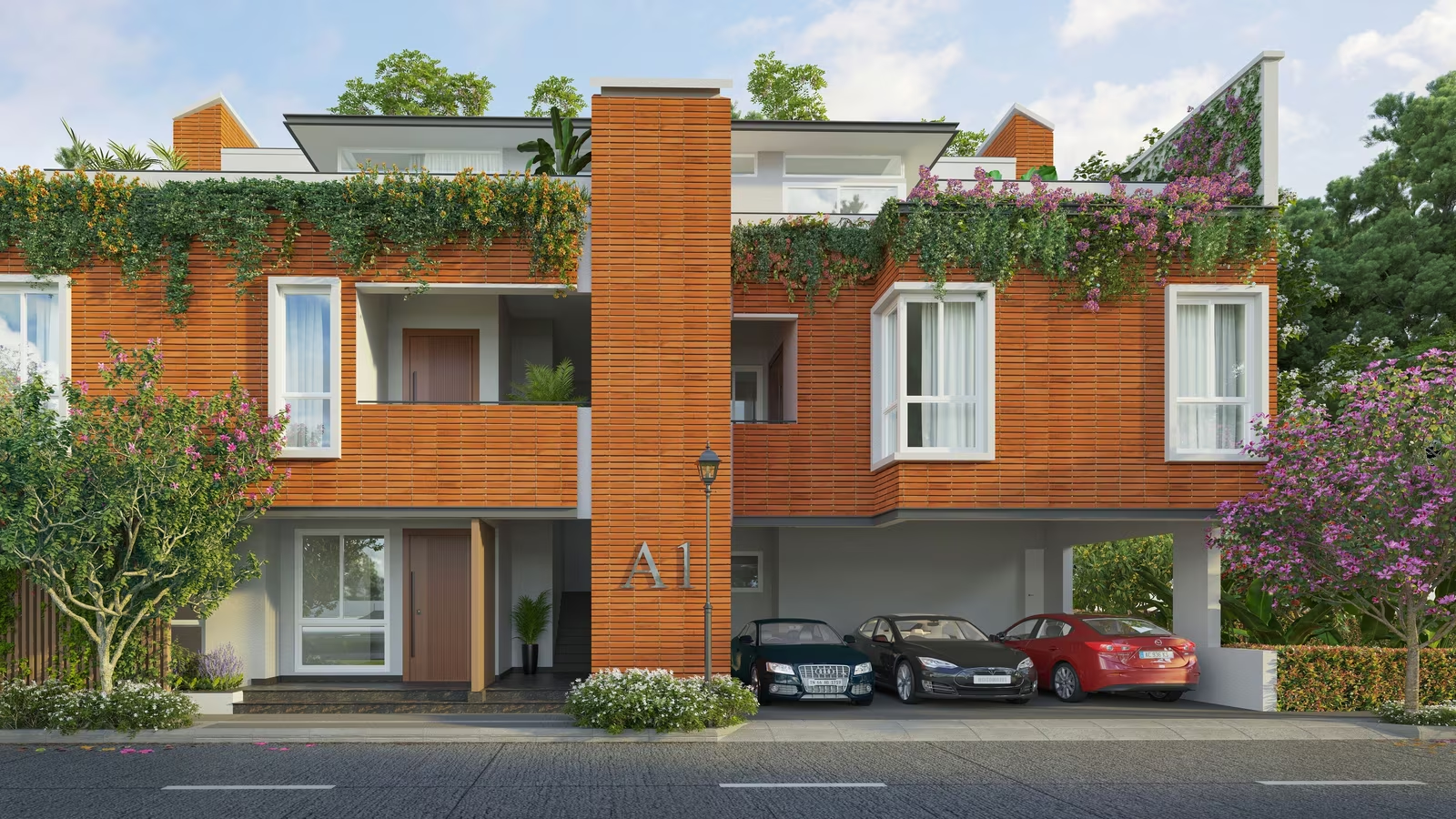Top Stories
DEFINITELY REALTY




The real estate sector has finally been heard. No grandiose plans or making tall statements. Jaitley’s maiden Budget lays it down simple and plain: The NDA Government is dead serious in bringing the economy back on the rails while at the same time sending a message across to foreign investors that India has the potential to be an n attractive destination for the world. And in doing so, besides manufacturing and tourism, real estate in one of the areas where the Government will seek a panacea for the economy’s ills.
Amid the overall feel-good factor that the FM has attempted to generate, a host of measures directly impacting realty has let loose glad tidings. The Budget 201 4-1 5 therefore gets a thumbs-up from the realty sector.
The eye-catching revival measures include a proposed allocation of Rs 7,060 crore for development of 100 smart cities, relaxation of norms for the entry of foreign capital and tax relief on home loans.
REITs
But, without doubt, the biggest measure perhaps may be the FM’s announcement offering necessary incentives to Real Estate Investment Trusts (REIT). Once introduced, the REITs will help individual investors enjoy the benefits of owning assets in the securitised real estate market. The greatest benefit will be that of fast and easy liquidation of investments in the real estate market unlike the traditional and cumbersome way of disposing of real estate.
I’m importantly, Jaitley also offered a tax pass-through status to REITs to avoid double taxation, implying that long term capital gains will be exempted from tax and dividend would be tax-free in the hands of the investors.
Already, many companies like DLF, Unitech, Embassy Group and funds such as Blackstone, Xander have several income-producing assets that can be listed as RE ITs. Internationally, REITs have been a successful concept one reason why all stakeholders in reality have welcomed it.
Sachin Sandhir, managing director, RICS South Asia said REITs in India as an investment product will boost the liquidity situation of cash-starved developers who are struggling to find funds for their construction activities. “This would also help boost the subdued investor sentiments in the country. The announcement will help i n easing pressure on banks to fund real estate projects,” he said.
Real estate consultants have in the past said that there is healthy demand for Grade-A office space in India which is often in short supply.
HOW CITIES BECOME SMART
• Still a nascent and fuzzy concept and whose use has become quite fashionable in policy circles in recent years, the term ‘smart city’ is used to convey the next stage in the process of urbanization.
• A smart city’s USP is the rich endowment of human capital and education, social and relational capital and environmental interest which are seen as important drivers of urban growth. At the same time, its prime focus still remains the critical role of information and communication technology and infrastructure much like the digital city or intelligent city.
• A city is ‘smart’ when investments in human and social capital and traditional (transport) and modern communication infrastructure fuel sustainable economic development and a high quality of life, with a wise management of natural resources, through participatory action and engagement.
• Smart cities have also been used as a marketing concept by companies and by cities.
• The European Union (EU), in particular, has devoted constant efforts to devising a strategy for achieving urban growth in a smart sense for its metropolitan city-regions.
Converting such property into a REIT would allow small investors to own commercial real estate, albeit in small unit sizes. For larger investors there is the steady rental yield, which in large cities runs quite high for commercial property (much lower for residential property) besides an appreciation in the property price.
Another major announcement is the relaxation of FDI limit in real estate development under the automatic route which is a clear roadmap for inviting investments. The Budget has modified certain conditions wherein the minimum built-up area would be reduced from 50,000 sq meters to 20,000 sq meters and the minimum capital requirement would be reduced from $10 million to $ million, with a three-year lock-in period for repatriation of the original investment.
In keeping with the Government’s aim of ensuring housing for all, another significant Budget proposal is that wherever projects have committed at least 30 per cent of the total project cost to low-cost affordable housing, the minimum conditions on built-u p area and capital requirements will be waived.
“This should encourage FDI and help increase the supply of low-cost housing units,” said Deepak Parekh, Chairman of HDFC, the country’s biggest mortgage lender.
C Shear Reddy, National President, CREDAI, is also happy that the confederation’s demand on the FDI front has been accepted by the FM. “This will make more projects eligible for FDI funding and specially promote the affordable housing segment”, he said.
Concurring, Sachem Sandhog of RICS, said: “This is definitely a positive step for the housing sector. The reduction in built-up area and size of projects will al low mid-sized and smaller developers with good track records better access to FDI and boost affordable housing in the country. “
SMART CITIES
The Budget has also proposed an allocation of Rs7, 060 crore this financial year for developing 1 00 ‘smart cities’ in the country. “The Prime Minister has a vision of developing 1 00 smart cities as satellite towns of larger cities and by modernising the existing mid -sized cities. With development reaching an increasingly large number of people, the pace of migration from the rural areas to the cities is increasing”, Jaitley said in his Budget speech. The new cities should be developed to accommodate the burgeoning number of people, otherwise, the existing cities would soon become unlivable, he added.
Welcoming the announcement, Keki Mistry, Vice Chairman and Chief Executive of HDFC, said: “The plan for so many smart cities also means a huge role for infrastructure and housing companies”.
REITs: OPENING A REALTY WINDOW
•Real Estate Investment Trusts (REITs) are listed entities that primarily invest in leased office and retail assets allowing developers, to raise funds by selling completed buildings to investors and listing them as a trust.The
REIT structure is designed to provide a real estate investment structure similar to the structure mutual funds provide for investment in stocks.
•REITs own many types of commercial real estate, ranging from office and apartment buildings to warehouses, hospitals, shopping centres, hotels and even timberlands. Some REITs can be classified as equity, mortgage, or a hybrid.
•Once introduced, REITs will help individual investors enjoy the benefits of owning an interest in the securitised real estate market. The greatest benefit will be that of investments in the real estate market unlike the traditional way of disposing of real estate.
•A REIT structure will reduce the pressure on the banking system and make available a new avenue of equity to cash strapped developers. It will also help attract long-term finance from foreign and domestic sources, including non-resident Indians.
•REITs can be listed, bought and sold on stock exchange like shares of any company. Introduction of REIT is a big positive for the realty market and has been a long-standing demand of the industry. The Budget go-ahead to REITs is set to improve the business sentiment in the satellite towns of metro and large cities.
An equally enthusiastic Amar Sinha, Executive Director, Wave infratech, said: “We welcome the Government’s impetus to provide 100 smart cities in India. We at Wave infratech remain fully committed to this initiative and are already in the process of setting up India’s first and largest smart city – Wave City at NH 24 since 201 1 along with IBM.”


GETAMBER ANAND, President-Elect, CREDAI &CMD, ATS Group


AMAR SINHA, Executive Director, Wave infratech


VIKAS BHAGAT, Director, Airwil Group


MANOJ GAUR, MD, Gaursons India Ltd


MANISH AGARWAL, M D, Satya Group & Secretary, CREDAI, NCR


BROTIN BANERJEE, M D & CEO, Tata Housing


GAURAV KUMAR MEHRA, CEO & M D, Felicity Concepts


VIJAY JINDAL, CMD, SVP Group


RAJESH GOYAL, MD, RG Group


MAHIPAL SINGH RAGHAV, Chairman, MMR Group


JK JAIN, CMD, Dasnac Designarch
AFFORDABLE HOUSING
The BJP during on the run – up to the general elections had all along emphasised the need increases in and Urban Development Minister Venkaiah Naidu ‘ soft- repeated slogan of ‘ Housing of Al l ‘ only underlines the new mantra.
In this con text, the Budget proposes to allocate Rs 4,000 crore for urban and Rs 8,000 crore for rural areas. This would be mad e available through the National Housing Ban k (N H B) in addition to the amount that the housing body mobilies through the market and disburses as individual homeloans.
R V Verma, former Chairman and Managing Director of NHB, dubbed this as a “path – breaking Budget for addressing the crucial issue of generating affordable housing”. “It will have a multiplier effect inter m so f its contribution to G D P, employment and growth of ancillary industries”, Verma said.
On a cautionary note, CREDAI’s Reddy said: “We are waiting for more clarity on how the funds would be used .If this allocation is for the interest subvention scheme as proposed in the BJ P manifesto then it will give a boost to affordable housing by increasing the eligibility of the people which will increase the demand for such housing. “


OWAIS USMANI, MD, Presidency Infra Heights Pvt Ltd


VIKAS SAHANI, CMD, Property Guru


NEERAJ MISHRA, Director, Praxis Group


DUJENDER BHARDWAJ, Executive Director, ABCZ Builders


PANKAJ BAJAJ, MD, Eldeco Infrastructre & Properties Ltd
EXPERT SPEAK


• Hike in I-T exemption limit: This will increase disposable income of individuals a nd would have further implications on their ability to service home loans
• Rs 7,060 cr for 100 smart cities: This will have very positive implications for real estate across all segments, namely residential, commercial, retail and hospitality
• Overall: The real estate sector’s expectations have definitely not been met completely in this Budget. However, given the economic situation prevailing in the country, this is not really surprising.
ANUJ PURI, Chairman & Country Head, Jones Lang Lasalle (JLL) India


• Changes in FDI norms: The reduction in built-up area and size of projects will allow mid-sized and smaller developers with good track records better access to FDI
• Hike in I-T exemption limit: The Government has shown its commitment to provide housing for all by 2022 and encourage people, especially the young, to own houses
• Overall: The FM has given a Budget which will provide a kick-start to the real estate and construction sector, which he believes will be the harbinger of growth besides creating bill ions of jobs and employment opportunities which will move the economy back on the growth path.
SACHIN SANDHIR, M D, RICS South Asia


DEEPAK PAREKH, Chairman, HDFC


RV VERMA, Ex-CMD, NHB


KEKI MISTRY, Vice-Chairman and Chief Executive, HDFC
HOME LOAN RELIEF
What has really got homebuyers excited the most and which is definite good news for developers is the Budget announcement of relief on home loans. The interest deduction on a housing loan has been increased from Rs 1.5lakh to Rs 2.1akh per annum. Further, the deduction available on the principal component under Section SOC has also been enhanced from Rs 1 lakh to Rs1.5 lakh. This would effectively reduce the overall cost of the loan and encourage more home loan borrowers.
Besides the specific measures proposed to bolster the housing and real estate segment, the FM’s key announcement of raising the income tax exemption limit by Rs50,000 for all taxpayers below 80 years of age puts more money in the hands of the salaried class which by itself is an impetus for the realty industry. The Budget has increased the basic exemption limit for income tax from Rs2 lakh to Rs 2.5 lakh and for senior citizens from Rs 2.5 lakh to Rs 3 lakh. The existing education cess of 3 per cent and the surcharge of 1 0 per cent for annual income of Rs1 crore and above will stay.
In effect, the steps taken by Jaitley in his maiden Budget coupled with the generation of overall positive sentiment have received an overwhelming response from the realty sector. A host of steps included in the industry wish-list have been met by the FM though there were a few demands that remain u n met. For example, the long-standing demand for infrastructure status for the realty sector has not been acceded to in the Budget and the FM was also silent on the proposed Bill to regulate the sector.
But, to be fair, Jaitley has himself accepted in his Budget speech that the entire exercise was about setting a direction and it has surely been able to enthuse the realty sector to a large extent. The industry’s hopes have been revived knowing fully well that it is only the first Budget of a Government which is being seen as firmly in the saddle for the next five years, at least.
As Anuj Puri, J LL country head, puts it “The real estate sector’s expectations have definitely not been met completely in this Bud get. However, given the economic situation prevailing in the country, this is not really surprising as the Government needs to balance myriad issues while addressing growth. We are satisfied at the real estate sector is once again headed in the right direction”•
-



 News4 weeks ago
News4 weeks agoKW Delhi 6 Mall Onboards New Brands
-



 News4 weeks ago
News4 weeks agoManasum Senior Living Launches IKIGAI GOA, A Senior Living Community in North Goa, in collaboration with Prescon Homes
-



 News4 weeks ago
News4 weeks agoBridging India Divide: Top 5 Tier- 2 Cities to Focus On
-



 News4 weeks ago
News4 weeks agoCommercial Realty Gets Tech Savvy: Fast Construction, Enhanced Convenience
-



 News3 weeks ago
News3 weeks agoGodrej Properties Sells Rs 3k cr+ Homes of Godrej Zenith, Gurugram, within 3 days
-



 News4 weeks ago
News4 weeks agoMultipoint Connection – A Definite Boon
-



 News3 weeks ago
News3 weeks agoRBI’s Status Quo on Key Policy Rates to Help Maintain the Real Estate Growth Momentum, Say Industry Stalwarts
-



 News2 weeks ago
News2 weeks agoOlive Announces Dhruv Kalro as Co-Founder





























